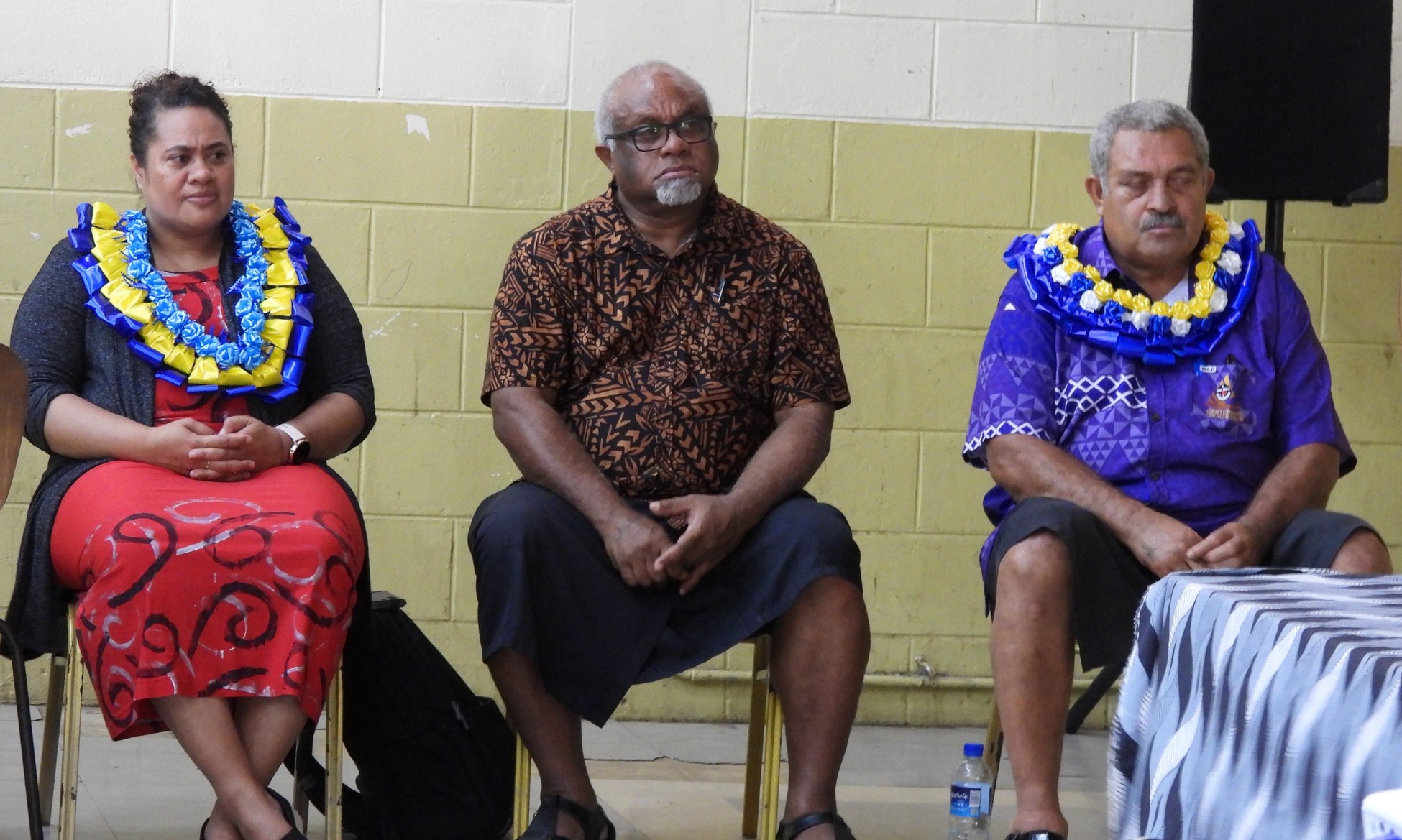NADI GROWERS AND EXPORTERS REMINDED TO COLLABORATE
May 4, 2025

Growers and exporters in Nadi were reminded of the importance of unity to ensure that Pacific goods move efficiently, safely, and competitively across borders.
Fiji is leading a comprehensive government task force aimed at enhancing trade and improving our readiness to meet the demands of global markets.
This task force integrates key ministries—Trade, Biosecurity, Agriculture, Economy, and Infrastructure—with the shared goal of aligning trade facilitation efforts with regional and global standards.
This statement was made on Thursday 3rd May, by Ms. Ateca Rabo, the Director Economics from the Ministry of Trade, Cooperatives, Micro, Small, and Medium Enterprises (MSMEs), and Communication, during the opening of the Commercial Production and Mini Trade Forum Preparatory Workshop at the Nadi Town Council.
Ms. Rabo emphasized that this initiative builds on the Vuvale Partnership with Australia, the Duavata Partnership with New Zealand, and the Pacific Partnerships for Prosperity. These partnerships focus on joint technical cooperation, quarantine harmonization, and infrastructure upgrades at ports of entry.
She also added that the government is prioritising automation as a key driver of service improvement.
“At the Ministry of Trade, we are implementing digital platforms to simplify export and import processes, reduce paperwork, decrease turnaround times, and enhance compliance with international health and safety standards,” Ms. Rabo said.
“One notable system mentioned is the Fiji Trade Portal, which offers traders a one-stop platform for information, application submissions, and licensing in biosecurity. We are introducing digital permits, real-time inspection scheduling, and automated alerts for compliance breaches.”
“These innovations are an integral part of our digital transformation agenda, designed to make public services more responsive, accountable, and supportive of private sector growth,” Ms. Rabo added.
At the policy level, she stated that the government continues to reform trade legislation, improve transparency in tariffs and non-tariff barriers, and streamline coordination among regulatory agencies.
These reforms are essential to build investor confidence and attract financing in sectors such as agro-processing, fisheries, logistics, and agri-tech.
“Furthermore, we are aligning our national policies with regional frameworks like the Pacific Agreement on Closer Economic Relations (PACER) and engaging with the World Trade Organization (WTO) to secure more equitable terms for Pacific exporters,” Ms. Rabo explained.
She emphasized that no single
agency or country can achieve these outcomes in isolation and it is vital to
move away from silo thinking, where departments operate independently, and to
promote collaborative governance.
“Whether in biosecurity, customs, trade, or agriculture, we must communicate, coordinate, and collaborate. The private sector should be viewed as a partner rather than just a client. Farmers and exporters need to be recognised as stakeholders, not merely recipients,” Ms. Rabo stated.
“Let today mark a turning point, not only for market access but also for how we perceive the Pacific’s role in global trade. May it serve as a Launchpad for more inclusive trade—one that benefits communities, protects the environment, and enables nations to thrive together,” she concluded.
Evineri Susui from Nawaka village in Nadi expressed his appreciation for the workshop, stating that it was very informative. He noted that, as an iTaukei, he and others from his community were not well-informed about the process of exporting their produce.
“For me, it was an eye-opening experience, as I now have a better understanding of the process. I have attended various trainings organised by the Ministry of Agriculture and Waterways, but this is different," said Mr Susui.
Deepak Singh, an exporter from Nadi, was pleased to meet the farmers.
“As an exporter, I would say it’s a good opportunity to meet the farmers and discuss what they have. This will make trading accessible when we have a great relationship with each other.”
Ends
